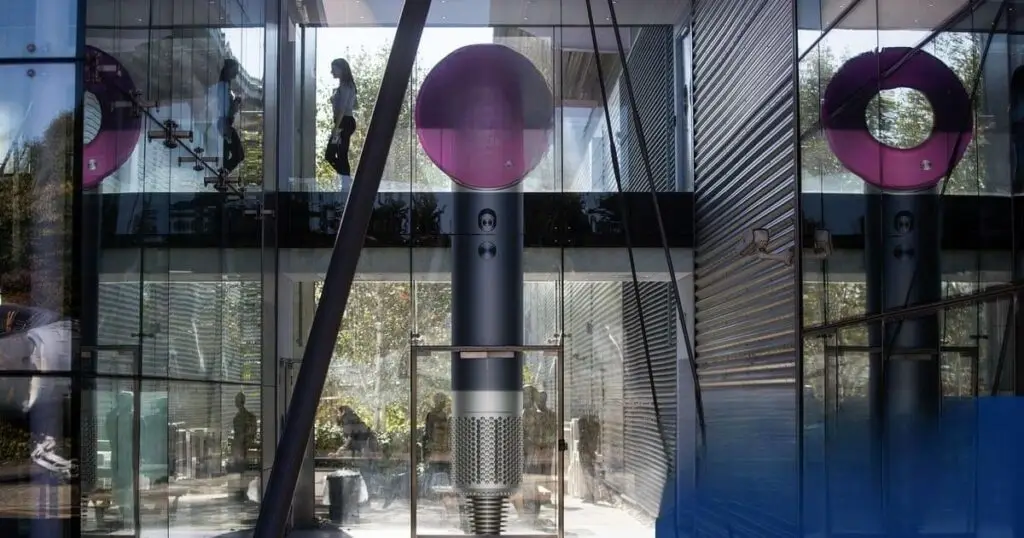Dyson is set to lay off around 1,000 employees in the UK as part of a cost-cutting initiative. This action will affect more than a quarter of its British workforce. The announcement was made on Tuesday morning, leaving many employees uncertain about their future.
This decision is part of a global restructuring strategy aimed at reducing overall expenses. Dyson, known for its innovative household appliances, will see its UK locations in Wiltshire, Bristol, and London impacted. The company, which has a total workforce of 15,000 worldwide, is undergoing significant changes to stay competitive in a fast-paced market.
Job Cuts Announced
Dyson, the well-known vacuum cleaner and air-filter maker, is set to cut around 1,000 jobs in the UK. This move is part of a larger global restructuring effort aimed at reducing costs. The company’s UK workforce will be slashed by more than a quarter.
On Tuesday morning, employees were informed about the job cuts. This decision is part of a broader strategy to reduce Dyson’s worldwide workforce of 15,000. The company operates at several UK sites, including those in Wiltshire, Bristol, and London.
Reason Behind the Reductions
Hanno Kirner, Dyson’s chief executive, stated that the company needs to review its global structures to prepare for future challenges. He mentioned that Dyson operates in highly competitive markets where the pace of change is fast. ‘We have grown quickly and, like all companies, we review our global structures from time to time to ensure we are prepared for the future. As such, we are proposing changes to our organisation, which may result in redundancies,’ he explained.
Kirner acknowledged that job cuts are always painful but assured that the company would support those affected. ‘Dyson operates in increasingly fierce and competitive global markets, in which the pace of innovation and change is only accelerating. We know we always need to be entrepreneurial and agile,’ he said.
The plan to reduce the workforce had been in the making even before the general election was announced in May. It is driven by the need to stay competitive in various international markets, particularly in Asia.
Company Background
Founded by Sir James Dyson in 1991, the company has grown from a small business into a global player. While most of its products are manufactured overseas, Dyson remains committed to the UK for research, development, and design.
The Dyson Institute in Malmesbury, Wiltshire, continues to be a key site. Here, 160 undergraduate engineers split their time between working on Dyson projects and studying.
Despite the job cuts, Dyson maintains a significant presence in the UK. The company focuses on innovation and development, contributing to its growth over the years. This commitment to R&D has allowed Dyson to stay at the forefront of technological advancements in household appliances.
Market Competition
Dyson faces stiff competition in its largest market, Asia. Local competitors often release similar products shortly after Dyson launches its own, creating a challenging environment.
The decision to move Dyson’s corporate headquarters to Singapore in 2019 was driven by the growing importance of supply chains and customers in the region. This move highlighted the company’s focus on the Asian market.
The competitive landscape in Asia forces Dyson to continually innovate. The company’s ability to stay ahead of local rivals is crucial for its success in this fast-paced market.
Product Range and Innovations
Dyson is known for a variety of products beyond vacuum cleaners. These include hairdryers, fans, and air filters. The company even ventured into the electric vehicle market before abandoning the project in 2019.
Two years ago, Dyson introduced its first wearable product: air-purifying Bluetooth headphones with a visor. The company is also making strides in the robotics industry.
By 2030, Dyson aims to roll out machines capable of performing household chores, such as washing-up. This focus on innovation demonstrates the company’s commitment to developing cutting-edge technology for everyday use.
Financial Performance
In 2022, Dyson paid a £1.2bn dividend to its Singapore-based holding company. This was an increase from the £1bn dividend paid in 2021. The total extracted by Dyson from his technology company over the past five years amounts to £4bn.
The parent company, Weybourne Holdings, also owns investments in land and insurance, as well as the multibillionaire’s family office, Weybourne Group.
Despite the financial success, Dyson faced criticism and legal challenges. In December, he lost a libel claim against the publisher of the Daily Mirror after a columnist accused him of hypocrisy for moving the global head office to Singapore while supporting Brexit.
Future Plans and Controversies
Dyson has ambitious plans for the future, including the development of household robots. The company aims to remain a global leader in innovation and technology.
However, the company has not been without controversies. Dyson has been increasingly vocal against the UK government’s policies. In May, he criticised Rishi Sunak’s pledge to make the UK a science and technology superpower, calling it a ‘mere political slogan’.
Support for Affected Employees
Although the job cuts are painful, Dyson has promised to support the employees affected. The company’s management has expressed a commitment to easing the transition for those who will lose their jobs.
Dyson’s promise to support its employees during this difficult time underscores the company’s recognition of the impact these cuts will have on its workforce.
In summary, Dyson’s decision to cut 1,000 jobs in the UK reflects its broader cost-cutting strategy amid fierce global competition. The company faces immense pressure to stay ahead in various markets, particularly in Asia. However, Dyson’s strong commitment to innovation and support for affected employees demonstrates its resolve to navigate these challenges.
Despite the challenges, Dyson remains focused on its future plans and technological advancements. The company continues to prioritise research and development, aiming to maintain its position as a global leader in household appliances.

